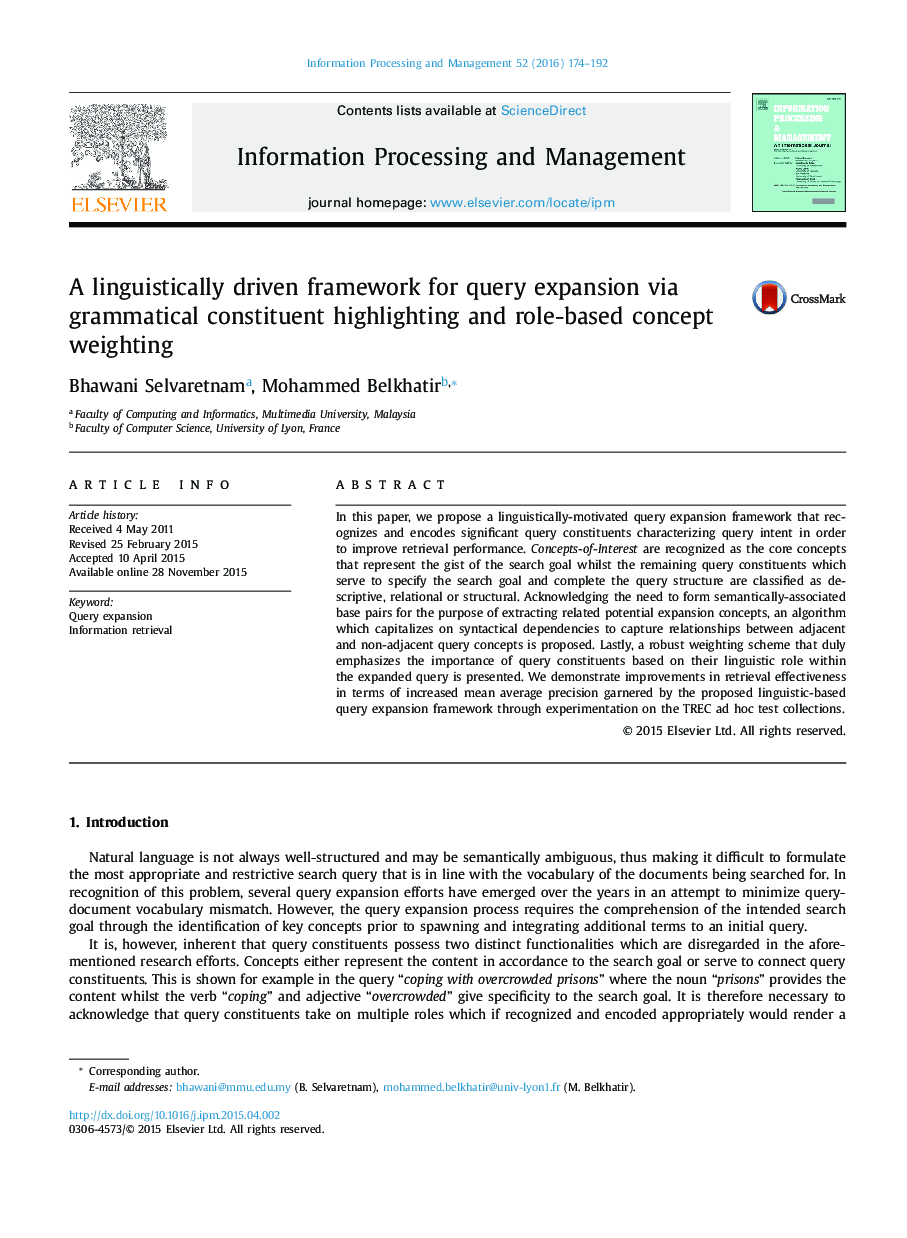| Article ID | Journal | Published Year | Pages | File Type |
|---|---|---|---|---|
| 515801 | Information Processing & Management | 2016 | 19 Pages |
•Linguistically-motivated query expansion framework.•Classification of query constituents within four concept types: descriptive, relational, structural and concepts-of-interest.•Algorithm capitalizing on syntactical dependencies to capture relationships between adjacent and non-adjacent query concepts.•Weighting scheme emphasizing the importance of query constituents based on their linguistic role.
In this paper, we propose a linguistically-motivated query expansion framework that recognizes and encodes significant query constituents characterizing query intent in order to improve retrieval performance. Concepts-of-Interest are recognized as the core concepts that represent the gist of the search goal whilst the remaining query constituents which serve to specify the search goal and complete the query structure are classified as descriptive, relational or structural. Acknowledging the need to form semantically-associated base pairs for the purpose of extracting related potential expansion concepts, an algorithm which capitalizes on syntactical dependencies to capture relationships between adjacent and non-adjacent query concepts is proposed. Lastly, a robust weighting scheme that duly emphasizes the importance of query constituents based on their linguistic role within the expanded query is presented. We demonstrate improvements in retrieval effectiveness in terms of increased mean average precision garnered by the proposed linguistic-based query expansion framework through experimentation on the TREC ad hoc test collections.
